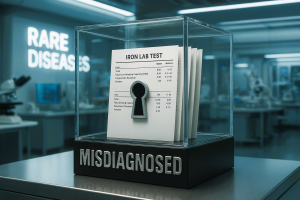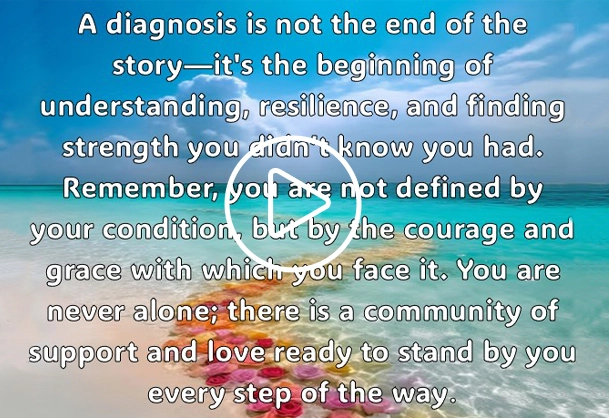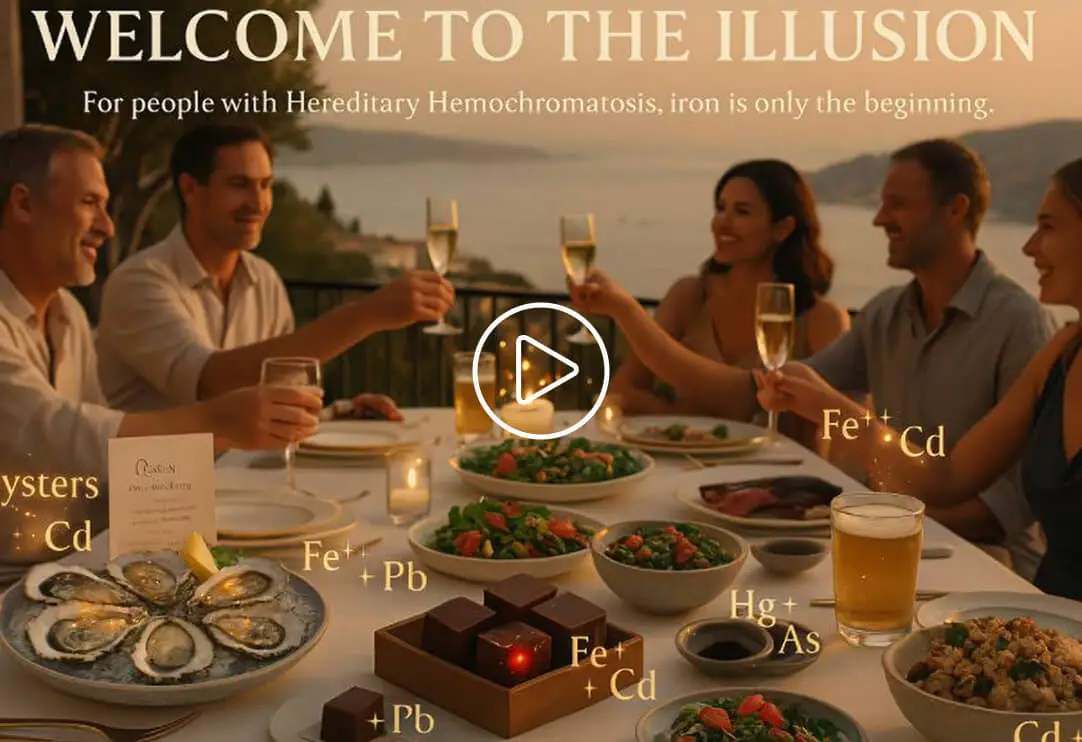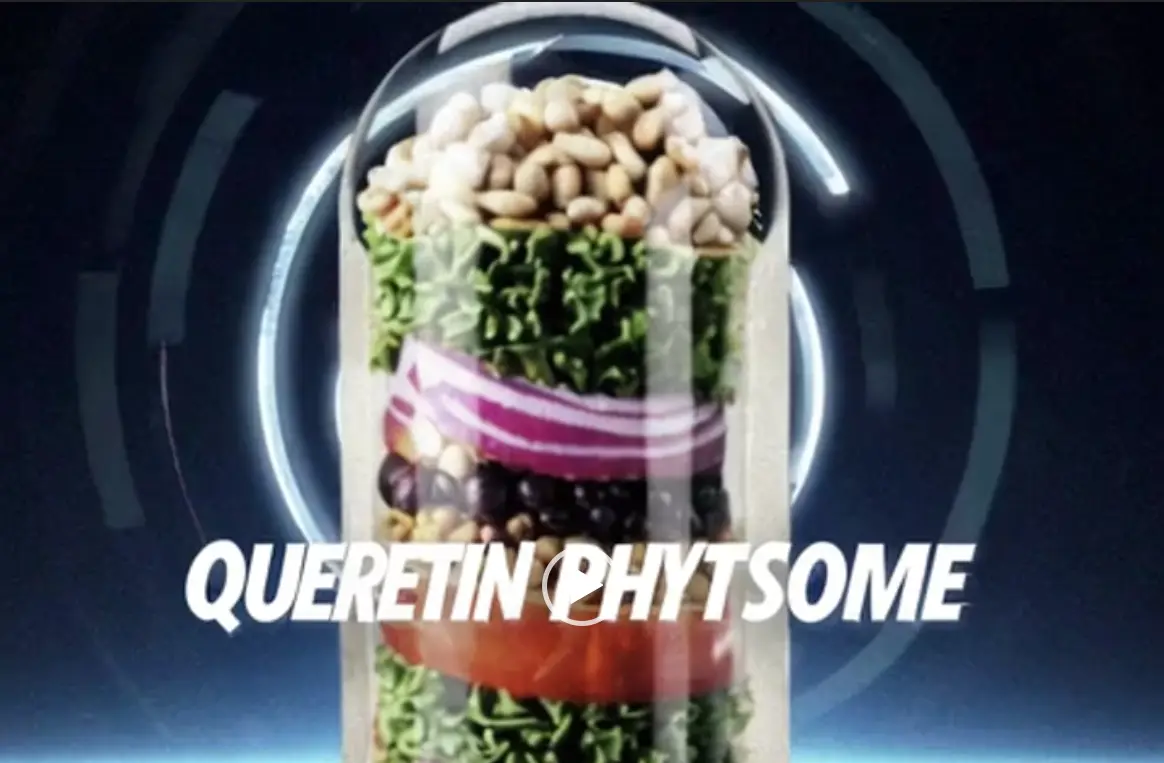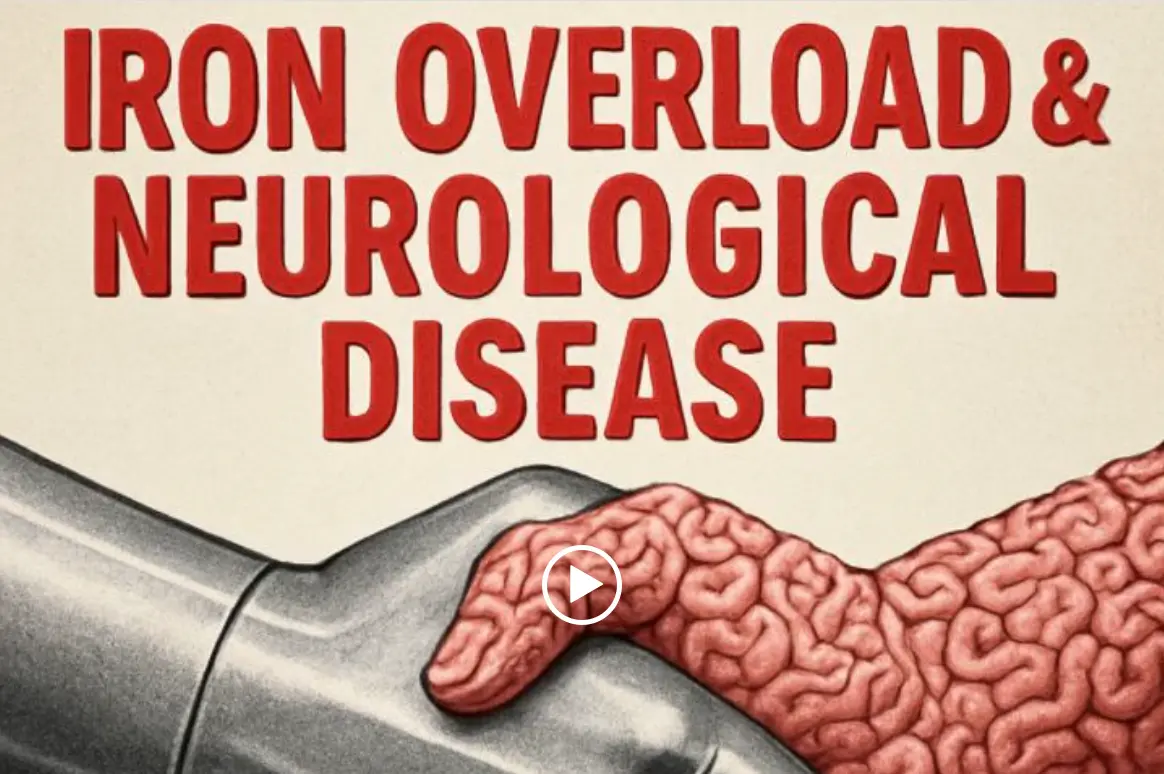The Iron Exchange Our Community Forum:
How Stress Changes DNA Over a Lifetime
While inherited DNA does not change, cells acquire new mutations throughout life — especially under oxidative pressure. Iron overload accelerates this process by increasing hydroxyl radical production through Fenton chemistry. These radicals damage DNA bases and strands, raising the mutation burden in tissues such as the liver, pancreas, and brain. Higher mutation load contributes to aging, organ dysfunction, and in some cases cancer risk.
Reducing iron-driven oxidative stress decreases DNA damage and allows repair pathways to function more efficiently. This does not erase existing mutations, but it slows the accumulation of new ones. Biological aging and tissue integrity improve when the oxidative environment is controlled.
Claire, Research Division
These statements have not been evaluated by the Food and Drug Administration.
This product is not intended to diagnose, treat, cure, or prevent any disease.
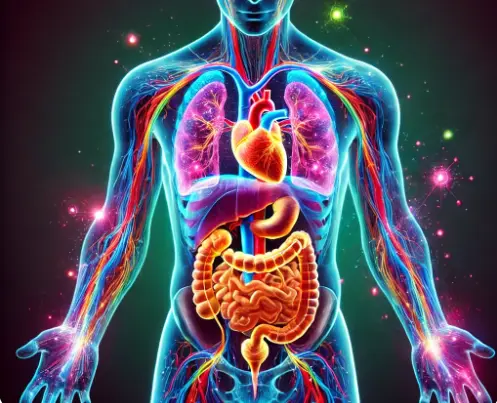
What does your blood type say about you?
Personality Traits, your Health,
and Relationships
Is Hereditary
Hemochromatosis Rare?
No — but it’s treated like it is.
Hereditary Hemochromatosis (HH) is the #1 genetic disorder in the U.S., UK, Ireland, and Australia. It’s most common in people of Northern European descent, but it’s not limited to that population.
Recent studies and clinical reports are identifying cases across France, Germany, Italy, and Spain — it’s underdiagnosed, not uncommon
The myth of rarity has delayed diagnosis for millions. It’s time to change that
- Chronic fatigue
- Joint pain
- Arthritis in the knuckles of the first and second finger
- Bronze or grey skin tone
- Abdominal pain
- Nausea
- Brain fog
- Mood changes or personality shifts
- Irregular heartbeat
- Type 2 diabetes
- Enlarged liver or liver conditions
- Heart failure or cardiomyopathy
- Unexplained Motion or Motor skills decline
Signs You’re Being Dismissed — You’re not crazy, you’re not being tested!
- Doctors are completely unfamiliar and think HH is rare, so they don’t test.
- Your symptoms are not taken seriously, or brushed off entirely
- You're told “your labs are normal” without a full iron panel
- Your having Liver issues and your Dr. thinks it’s alcohol, when it isn’t.
- You're offered antidepressants instead of real answers
- Your symptoms are labeled as “in your head” or "just anxiety"
- You’re sent for unnecessary surgeries or misdiagnosed repeatedly
- No one tests you for HH — even with existing liver issues, diabetes, or heart symptoms
- Neurological symptoms: brain fog, tremors, memory loss, or balance issues.
You know something is wrong. But you’re not getting answers. Trust your gut. Question everything. You know your own body.
Take the 7-Day
Detox Challenge
Rid your body of processed and toxic foods
Take the 7-Day
Detox Challenge
Plant based & Vegan
Preventing Life
Threatening Dangers
If you are having any of these symptoms, please get a full iron panel and make sure it includes FERRITIN. That is the first step. If your ferritin level for women is over 200 and 300 for males your next step is a DNA test. Hemochromatosis is a mutation in the HFE Gene, the two most common are C282Y and H63D. Remember Dr.’s don’t know everything. You can get your own test done inexpensively. Do not end up having unneeded surgeries, that is very common. If you have Hemochromatosis your body does not get rid of excess iron and it feels like you are being poisoned because you are. Your iron will start to store in your organs, liver, pancreas, heart, and joints. We all know arsenic is a poison, it’s also a metal, just like iron. Too much iron can also lead to death.

What do we have in common?
Find out what your blood type says about you
Personality Traits,
your Health,
and Relationships
Is Hereditary
Hemochromatosis Rare?
No — but it’s treated like it is.
Hereditary Hemochromatosis (HH) is the #1 genetic disorder in the U.S., UK, Ireland, and Australia. It’s most common in people of Northern European descent, but it’s not limited to that population.
Recent studies and clinical reports are identifying cases across France, Germany, Italy, and Spain — it’s underdiagnosed, not uncommon
The myth of rarity has delayed diagnosis for millions. It’s time to change that
- Chronic fatigue, Joint pain, Brain Fog
- Arthritis in the knuckles of the first and second finger
- Bronze or grey skin tone
- Abdominal pain
- Nausea
- Mood changes or personality shifts
- Type 2 diabetes
- Any Liver conditions
- FREE IRON=HIGH SAT% LOW TIBC. CAN LEAD TO:
- MANY TYPES CANCERS
- LOSS OF MOTOR SKILLS
- ALZHEIMERS, PARKINSONS, DEMENTIA
- WATCH MORE THAN JUST YOUR FERRITN LEVELS
Signs You’re Being Dismissed — You’re not crazy, you’re not being tested!
- Doctors are completely unfamiliar and think HH is rare, so they don’t test.
- Your symptoms are not taken seriously, or brushed off entirely
- You're told “your labs are normal” without a full iron panel
- Your having Liver issues and your Dr. thinks it’s alcohol, when it isn’t.
- You're offered antidepressants instead of real answers
- Your symptoms are labeled as “in your head” or "just anxiety"
- You’re sent for unnecessary surgeries or misdiagnosed repeatedly
- No one tests you for HH — even with existing liver issues, diabetes, or heart symptoms
- Neurological symptoms: brain fog, tremors, memory loss, or balance issues.
You know something is wrong. But you’re not getting answers. Trust your gut. Question everything. You know your own body.
Take the 7-Day
Detox Challenge
Rid your body of processed and toxic foods (Includes Chicken & Fish)
Take the 7-Day
Detox Challenge
Plant based & Vegan
Preventing Life-Threatening Damage
If you’re experiencing symptoms, ask your doctor for a full iron panel. This must include:
HFE Mutation Genotype Classifications:
Order your custom meal plans here, complete with delicious and nutritious meals, ingredients, instructions, grocery lists, food prep guides, and motivating tips for each day!
Custom Meal Plan Fill out our Master Food Questionnaire today to get started! (Be as Picky as you want, we love a challenge)!
Got a big family? We can make everyone happy all in one plan!
Save time and keep that iron low!
BLOGS



